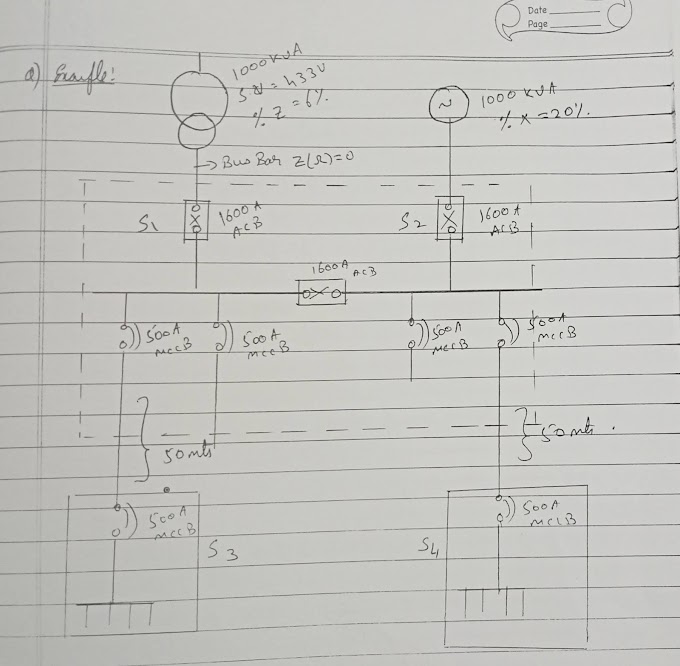Star Connection :
I(L) = I (ph)
V(L) = √3 V(ph)
Line Voltage = Phase to Phase voltage
(R-Y, B-Y, R-B)
Phase voltage = Phase to Netural
(R-N, Y-N, B-N)
Where,
Phase to Phase - 400V
Phase to Netural - 240V.
In star, we have Netural Phase Connection.
In star, winding each Phase winding has 240V.
Disadvantage :
Voltage decrease in Phase.
Delta Connection :
V (L) = Vph
I (L) = √3 Iph
Line Voltage = Phase voltage
each Phase has 400V.
In Delta we get more Voltage than star,
R-Y = 400V where, B as Netural
Y-B = 400V where, R as Netural
B-R = 400V where, Y as Netural.
In Delta, We don't have Netural Phase.
We have to take from R,Y,B Phase.
Example :
How to find motor is in 1-¢ (or) 3-¢
Solution :
Single phase motor has 3 terminals.
Single phase motor has 3 terminals
1) 1st terminal as Phase
2) 2nd terminal as Netural
3) 3rd terminal as Auxiliary phase
1-¢ motor is not self starting, to make it self start we creating auxiliary phase with the help of series capacitor.
In 1-¢ motor their will be no star (or) delta Connection.
Three phase motor has 6 terminals
Star :
Delta :
- In Delta system, we don't use Netural.
- In Induction motor when switch ON high inrush current flow for 3 to 5 second (or) 7 sec.
Example :
Motor 10KW it's current.
→10 × 1.9 = 19A.
It is used 5 times in a day - 19×5=95
Therefore, Current will be 95A.
Due to high current flow, the motor life will be decrease upto 50%.
So, it's decrease the high current we have to first start in 'STAR' connection then transfer to 'DELTA' connection.
Continuity Check :
Continuity check is use to check the working of the winding.
3-¢ motor continuity check.
Star-Delta Control Circuit :
Star-Delta Timer :


















0 Comments